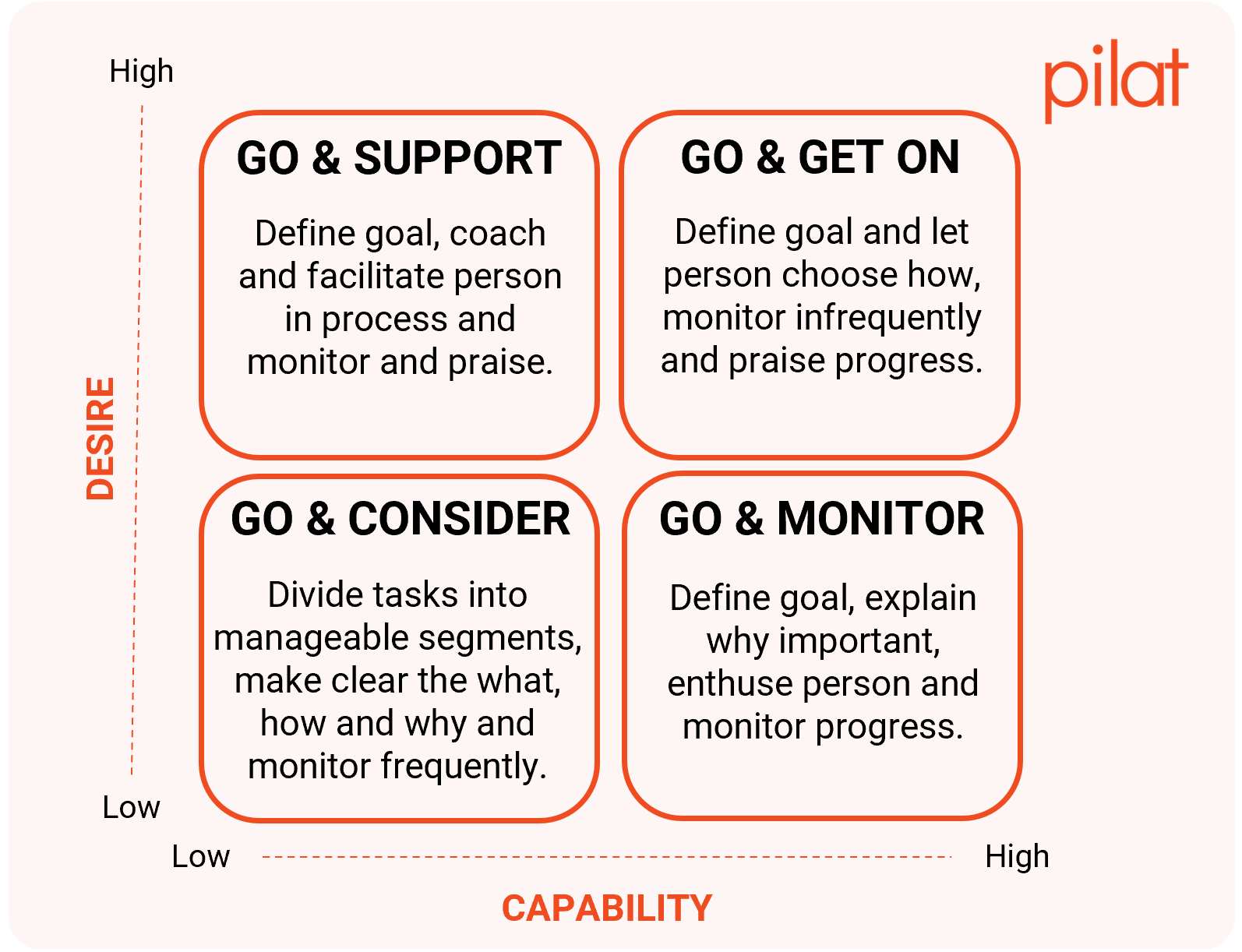Delegating: Giving Others Responsibility When Appropriate
31 March 2023 | Pilat Learning Bites
Delegation is a crucial skill for any successful leader or manager. It involves entrusting others with tasks and responsibilities to achieve a common goal. But it’s not just about offloading work – delegation is about recognising the strengths and weaknesses of your team members and giving them the opportunity to grow and develop. By delegating effectively, you can build trust, empower your team, and free up time to focus on higher-level tasks.
However, many people struggle with delegation, often feeling like they’re giving up control or that the task won’t be completed to their standards. In this blog, we’ll explore the art of delegation and provide some practical tips for delegating effectively.
Analyse the task
To effectively evaluate whether a task is suitable for delegation and to ensure successful outcomes, it can be helpful to use a framework of five key questions. These questions include:
• What are the tasks and goals required?
• Can it be delegated in whole or part?
• How complex is it?
• How long will it take to complete?
• What resources will be required?
Appoint the person
To effectively manage a team, it is important to assess each team member’s skills, interests, and development needs, and allocate tasks that will challenge and inspire them. When delegating tasks, it is important to consider the competence and confidence of each individual.

For team members with low competence, planning training or coaching sessions can help to build their skills.
For those with no confidence, providing regular encouragement and support can help to boost their self-assurance and help them succeed. By taking these steps, team members can develop their abilities and achieve their full potential.
Brief the person
Create a SMART goal for the task, taking into consideration the individual’s current workload to ensure that the timeline is feasible.
To make sure that the timeline for achieving the goal is feasible, it is essential to consider the individual’s current workload, including any existing commitments or responsibilities that may impact their ability to dedicate time and effort towards the task. This may involve collaborating with the individual to determine their availability, prioritising tasks to optimise their workflow, or identifying potential areas for support or assistance.

Support the person
To support an individual’s growth and development, it is important to provide ongoing coaching. This can involve regular check-ins, constructive feedback, and guidance on areas for improvement.
Additionally, it is beneficial to keep informal tabs on their progress. By doing so, it is possible to track their growth and identify any potential obstacles that may arise. This approach can also help to build trust and rapport, as it demonstrates a genuine interest in their success.
Ultimately, by offering ongoing coaching and tracking progress, individuals can achieve their goals and reach their full potential.
Review the outcome
For each task, you will need to review both the task and the person assigned to the task e.g.
For the task — Has it been achieved 100%? Are revisions required?
For the person — What skills have been developed? If they were to do the task again, what would they do differently?
